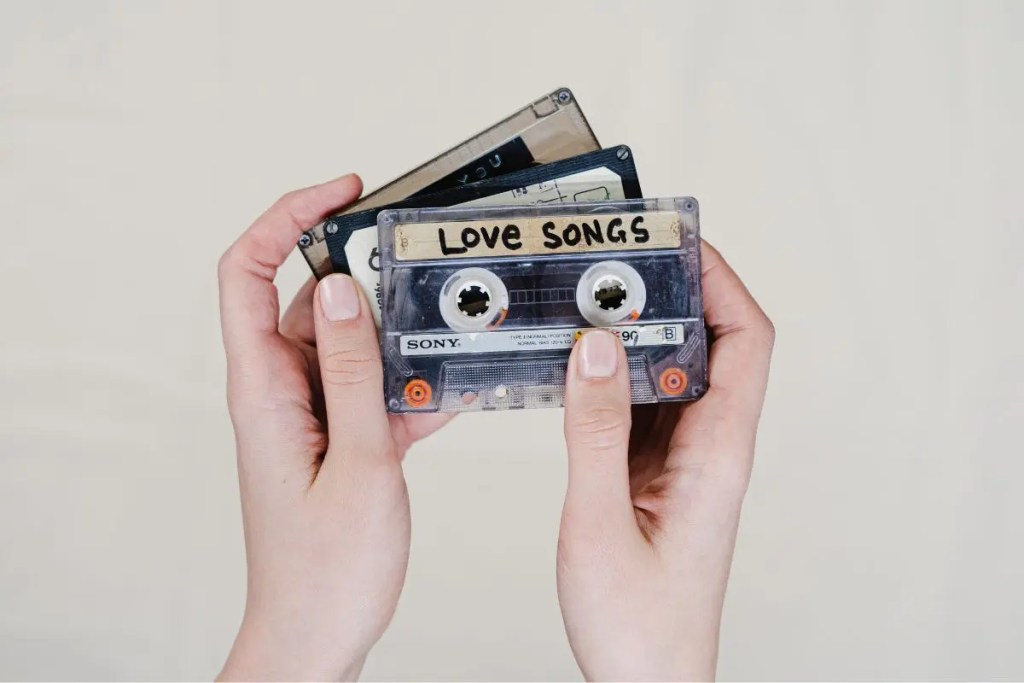
Leonita Ariesti Putri
Contributor & Fact Checker

Dr. Carol Morgan
Contributor
The accuracy and reliability of this article has been reviewed and fact-checked by Leonita Ariesti Putri, a mental health practitioner and graduate of MSc in Psychoanalytic Development Psychology and enriched by Dr. Carol Morgan, resident relationship expert. Their expertise ensures our commitment to providing trustworthy and useful content.
Congrats, you’ve landed your dream partner.
But how do you get to know them? What are their core values, religious beliefs, or behaviors in relationships?
In this article, we’ll cover the most important 21 questions for a new relationship.
We took it a step further by giving you more questions for every single stage in your relationship!
Table of Contents

Getting to Know Each Other: Personal and Relationship Questions
Exploring Personal Backgrounds
- Where did you grow up, and what’s your favorite memory from your childhood hometown?
- What were your favorite hobbies or activities when you were younger?
- Did you have any role models or influential people in your life while you were growing up?
- How would you describe your cultural background, and do you still follow any traditions?
- What’s the most valuable lesson you learned from your early years?
- Did you have any interesting or unique jobs before your current occupation?
- What’s a significant life event that shaped who you are today?
Discussing Previous Relationships
- Can you share a lesson you learned from a past romantic relationship?
- What qualities do you value most in a partner based on your past experiences?
- How do you handle conflicts in relationships, and has this approach evolved over time?
- Have you ever had a long-lasting friendship that felt like a romantic relationship?
- What’s a memorable date or outing from a previous relationship that stands out to you?
- Based on your past, what’s something you believe is crucial for a relationship to succeed?
- How has your perspective on love and relationships changed as you age?
Sharing Family Dynamics and Traditions
- Are you close to your mother? (Dr. Carol Morgan)
- Are you close to your father? (Dr. Carol Morgan)
- Did your parents give you more positive or negative messages growing up? (Dr. Carol Morgan)
- What’s a cherished tradition your family celebrates, and why is it important to you?
- How would you describe your role in your family while growing up?
- Are there any unique family stories or anecdotes you often share with friends?
- What’s a valuable lesson you learned from your family that you still carry with you?
- How do you usually spend holidays and special occasions with your family?
- Have you ever created new traditions or rituals with your friends or chosen family?
- What’s a funny or heartwarming family tradition that you’d love to continue in the future?

Delving Deeper: Emotional and Intimate Questions
Discussing Emotional Intelligence
- How do you usually recognize and manage your own emotions when they get intense?
- Can you share a situation where you successfully empathized with someone else’s feelings?
- What strategies do you use to stay calm and composed in stressful situations?
- How do you resolve conflicts while considering your emotions and others’?
- Can you think of a time when you used emotional intelligence to improve a relationship?
- What skill are you working on to enhance your emotional intelligence even further?
- How has improving your emotional intelligence positively impacted your personal life?
- Are you an optimist or a pessimist?
Exploring Life Goals and Aspirations
- What’s a dream you’ve had since you were young that you still hope to achieve?
- How do you envision your ideal life regarding career, relationships, and personal growth?
- Have you set any specific goals for yourself in the next few years? What are they?
- Are there any places you’re determined to travel to or experiences you want to have?
- What’s a passion or hobby you’d love to dedicate more time to in the future?
- How do you balance pursuing your aspirations with your current responsibilities?
- Can you describe a person or role model who inspires you to strive for your goals?
Opening Up About Mental Health
- How do you prioritize your mental well-being in your daily life?
- Do any activities or practices help you manage stress and maintain mental balance?
- Have you ever reached out for professional support for your mental health? How was the experience?
- How do you approach supporting friends or loved ones who might be struggling mentally?
- Can you share a time when you overcame a difficult mental or emotional challenge?
- What’s a misconception about mental health that you wish more people understood?
- How do you think society can improve in terms of promoting mental health awareness?
Assessing Compatibility: Future Plans and Core Beliefs
Talking About Future Goals and Plan
- Where do you see yourself in the next five years, and what steps are you taking to get there?
- Can you share a specific career or personal achievement you’re aiming for in the future?
- What bucket-list item are you determined to cross off at some point in your life?
- How do you imagine your daily routine or lifestyle might change in the coming years?
- Have you thought about the type of legacy you want to leave behind for future generations?
- What motivates you to work towards your future goals, even when challenges arise?
- How do you balance setting ambitious goals and living in the present moment?
Sharing Core Beliefs and Values
- What’s a belief or value that has remained constant throughout your life?
- Can you share a personal experience that strongly influenced one of your core beliefs?
- How do your beliefs shape your interactions and relationships with others?
- Have you ever encountered a situation where your values were challenged? How did you handle it?
- Are there any causes or issues you’re passionate about, and how do they align with your values?
- What value would you never compromise on, regardless of the circumstances?
- How do you navigate differences in beliefs when connecting with people with opposing views?
Discussing Family Life and Potential Commitment
- How does your relationship with your family influence your perspective on commitment?
- Can you describe what a meaningful family gathering or tradition looks like to you?
- Have you thought about your own definition of a committed, long-term relationship?
- How do you envision balancing your individuality with the potential responsibilities of family life?
- What qualities or values are important to you when considering a serious commitment?
- Can you share a story from your family that shaped your understanding of commitment?
- How do you communicate with your family about your personal goals and relationship decisions?
- Do you want children?
- If you want children, how many do you want?
- Do you want the man to work and the woman to stay at home with the children? Or vice versa?
- Where do you want to live?
Navigating Romance: Romantic and Intimate Questions
Sharing Favorite Romantic Memories
- What’s one of your most cherished romantic moments from your past?
- Can you recall a time when you surprised your partner with a romantic gesture they loved?
- What’s an unforgettable date or experience that made you feel truly connected?
- Have you ever received a surprise that romantically melted your heart?
- Can you share a memory that still makes you smile whenever you think about it?
- What’s a romantic memory that captures the essence of your ideal relationship?
- How do you keep the spark alive by creating lasting romantic memories?
Exploring Romantic Gestures and Desires
- What’s a simple romantic gesture that makes your heart flutter?
- Can you describe your idea of a perfect romantic evening with your partner?
- If you could receive any romantic gift, regardless of feasibility, what would it be?
- How do you like to express your love and affection in creative ways?
- What’s a romantic destination you dream of visiting with someone special?
- Can you share a romantic gesture you’ve always wanted to experience but haven’t yet?
- What role do surprises and small gestures play in keeping a romantic relationship alive?
Discussing Outlooks on Romantic Relationships
- How do you define a healthy and fulfilling romantic relationship?
- Can you share a lesson you’ve learned from a past romantic experience?
- What’s your view on maintaining individuality while being part of a romantic partnership?
- Have your perspectives on love and relationships evolved over the years? How so?
- How important is open communication when it comes to navigating romantic relationships?
- Can you describe the role trust plays in your outlook on romantic partnerships?
- What’s a key factor that contributes to the longevity of a loving romantic relationship?
Beyond the Surface: Deep and Meaningful Questions
Using Key Questions to Prompt Deeper Conversations
- If you could have a heart-to-heart conversation with anyone, living or deceased, who would it be and why?
- What’s a personal challenge you’ve faced that significantly shaped your character?
- What would you say if you could travel back in time and advise your younger self?
- Can you recall a moment that completely changed how you view the world?
- What’s a fear you’ve conquered that you’re really proud of overcoming?
- How do you stay motivated and inspired when life gets tough?
- What’s a question you rarely get asked but would love to discuss?
Are you a spontaneous person or a planner? - Do you like to travel?
- If so, where would you like to travel during your lifetime?
- How important is money to you?
- What does money represent to you? Status? Freedom? Something else?
- Are you a spender or a saver?
- What is your dream career?
- Are you a “black and white” person or a “shades of grey” one?
Unpacking Each Other’s Life Journeys
- Can you share a pivotal turning point in your life that set you on a new path?
- How have your experiences from different phases of life shaped who you are today?
- Are there any mentors or role models who significantly impacted your journey?
- What’s the most important lesson you’ve learned from your life’s ups and downs?
- Can you describe a moment when you felt like you were truly living your purpose?
- How do you adapt and grow when life takes unexpected turns?
- What’s a personal goal you’ve achieved that you never thought was possible?
Sharing Favorite Love Songs and Their Significance
- What’s a love song that perfectly captures a moment in your own romantic journey?
- Can you share a song that holds a special memory with a past or current partner?
- How do you think music has the power to enhance and express romantic emotions?
- What love song would you want to dance to on a special occasion with your partner?
- Can you describe the lyrics or melody that resonates most with your idea of love?
- Is there a particular love song that has helped you through tough times in relationships?
- How does music play a role in keeping romance alive in your personal experiences?

Setting the Foundation: Establishing Ground Rules and Boundaries
Discussing Relationship Expectations
- What are your primary expectations regarding emotional support in a relationship?
- Can you share your thoughts on the balance between personal space and togetherness?
- How do you envision the division of responsibilities and decision-making in a partnership?
- What’s your stance on the role of compromise in maintaining a healthy relationship?
- How important are shared interests and activities with your partner to you?
- Can you describe the level of commitment you hope to achieve in a romantic relationship?
- What do you think are the most crucial aspects that contribute to a successful long-term partnership?
- Do you want to get married?
- If we got married, how would we handle the household chores?
- What kind would you like to have if we were planning a wedding?
- How important is sex to you? And ideally, how often would you like to have sex?
- If we had problems, would you be willing to go to a therapist to help us?
Setting Healthy Communication Boundaries
- What communication habits from past relationships do you want to maintain or improve?
- Can you share an example of a time when miscommunication caused challenges in a relationship?
- How do you approach discussing sensitive topics or disagreements with your partner?
- What’s your preferred method of resolving conflicts while maintaining respect and empathy?
- Can you describe your ideal approach to giving and receiving constructive feedback?
- How do you ensure open communication without overwhelming each other with constant updates?
- What role do active listening and validating each other’s feelings play in your communication style?
- How much alone time do you need?
Talking About Family Values and Traditions
- What family values or traditions from your upbringing do you find most important to carry forward?
- Can you share a story highlighting a significant family tradition that impacted you?
- How do you envision blending and celebrating each other’s family values and traditions?
- What family tradition would you like to create or continue with your future family?
- Can you describe how your family’s values and traditions influence your decision-making?
- How open are you to adapting and creating new traditions as you build your own family unit?
- How do you plan to balance honoring family traditions and creating your own unique path?
- How important is religion to you?
- Do you need to raise your children in the same religion you were raised in?
- Do you give to charity? Why or why not?
Expert Insights: Relationship Expert’s Advice and Questions
As we delve deeper into the intricacies of relationships and the importance of asking the right questions, we turn to a voice that brings both expertise and clarity to the table. Leonita Ariesti Putri, a recent graduate of MSc in Psychoanalytic Developmental Psychology, offers her invaluable insights as our resident expert on the subject.
Introducing Insights from a Relationship Expert:
Relationships of any kind are transactional — exchanges of verbal and non-verbal cues that occur between individuals. It’s give and take.
Imagine relationships as a dance, and each party’s movement influences the rhythm and harmony of the dance. Building strong communication within relationships involves more than just words; it requires understanding the psychological layers beneath.
I love to guide clients who seek counselling or therapy for their relationships using transactional analysis (TA). I tell them to imagine TA as a spotlight to help guide the steps and illuminating missteps that happen between two souls (or more if you are in an unorthodox relationship).
At the heart of TA lies the concept of three ego states that influence each interaction:
- Parent, which brings nurture, guidance, control, and criticism.
- Adult, which represents logic, reason, problem-solving
- Child, which embodies our emotions, vulnerability, and spontaneity.
In our daily life interaction, these states manifest as different sides of ourselves and affect our interactions with others, including our partner.
Many relationships crumble when they have unhealthy communications. In TA these unhealthy communications are called “crossed transactions”. In crossed transactions, points are missed and each party feels misunderstood, unheard, or mistreated.
Here’s a brief example of a crossed transaction in a romantic relationship:
John and Jane are a couple who have been dating for a few years. They’re having a conversation about their plans for the weekend.
John: “Hey, I was thinking we could go for a hike this weekend. It’ll be great to get outdoors and enjoy the fresh air.” (rational Adult ego state)
Jane: “Oh, so you’re saying I’m getting out of shape and need exercise, is that it?” (critical Parent ego state)
In this scenario, John initiates a conversation with a suggestion for a weekend activity. However, Jane’s response takes the conversation in a different direction by misinterpreting John’s intention. Jane’s response suggests a “crossed transaction” because they’ve responded from a Parent ego state (a critical and judgmental position) instead of the Adult ego state (a rational and objective position). This misunderstanding can lead to conflict or tension if not addressed, as it steers away from the initial topic and introduces negative emotions into the conversation.
There are many advantages by recognizing and utilizing the appropriate ego states in each interaction:
- Encouraging deeper understanding and nurturing profound emotional connection
- Identifying sources of misunderstandings and conflicts
- Building a sense of intimacy and trust — which are the bedrock of a strong relationship!
- Promoting self-awareness and personal growth
Addressing Common New Relationship Concerns
Establishing a safe environment
As in other settings of a new situation, establishing a sense of safety is foundational.
Start by nurturing an environment of safety and trust. Both partners should feel comfortable expressing themselves without fear of judgment or criticism. Utilize your Adult ego state to communicate openly and empathetically. Communicating from an Adult ego state means approaching the conversation with a clear, neutral, and empathetic mindset. It involves active listening, respect, and thoughtful response.
Exploring values and beliefs
Values and beliefs can be explored by tapping into your partner’s Parent’s ego state. Inquire about their upbringing, significant role models, and the values they hold dear. Understanding their worldview can shed light on their motivations and actions. For example, you can ask:
“What lessons or values did you learn from your parents?”
“What advice from your parents/role model do you remember the most?”
“Who has significantly influenced your life, and why?”
Uncovering emotions and early experiences
Emotions are located within the Child ego state. To unearth someone’s Child ego state, which is rather vulnerable, we should create a space where they feel safe sharing their vulnerabilities. Sometimes it means we should be ready to share our vulnerabilities too. Here are some examples of probe questions:
“What are some of your fondest childhood memories?”
“What activities make you feel genuinely joyful and carefree?”
“Can you share a situation when you feel intense emotions?”
Discussing plans and goals in life

Utilize your Adult ego state to engage in thoughtful conversations about future plans, aspirations, and logical perspectives. This is an opportunity to discuss shared goals and individual growth. For example,
“Where do you see yourself in the next five years?”
“How do you envision us working together to achieve our mutual dreams?”
“How do you arrange your priorities in life?”
Using Expert-Recommended Conversation Starters
Below are some conversation starters based on each domain you would like to inquire about.
Personal Emotions and Coping
- How do you handle your strong feelings when they get really strong?
- How do you usually communicate your emotions to others?
- What do you do to stay relaxed when things get really stressful?
- What is your biggest fear?
Communication and Conflict Resolution
- How do you usually sort out arguments?
- How do you usually assess others’ feelings or thoughts?
- How important/scary is conflict in a relationship?
- What does good/ideal communication look like to you?
Relationship Dynamics and Preferences
- How do you picture romance in the age of 50s?
- Do you believe in love at first sight?
- What is your deal-breaker in a relationship?
- How do you envision an ideal partner?
- How do you show your love to someone who matters to you?
- What are the effective ways to make you feel loved and special?
- If your romantic life/past relationships were a book/movie, what would you call it?
Self-Reflection and Identity
- Are you religious/spiritual?
- What do you want to be remembered for?
- Who is your role model in life?
- What qualities do you admire from your role model?
- How do you strive/what do you do to follow in your role model’s path?
Family and Childhood
- Which family members do you feel most closest to, and why?
- Are you close with your parents/siblings?
- What lessons do you learn from your parents’ life/marriage?
- Can you share one significant happy/difficult childhood moment in your life?
Beliefs and Values
- What is love to you?
- What does commitment look like to you?
- What is your thought on marriage/divorce?
- What is money/work to you?
Follow-Up Conversations: Using Follow-Up Questions for Deeper Understanding
Now that we’ve gained fresh perspectives from our resident relationship expert let’s return to our exploration. We’ll blend these expert gems into our ongoing discussion as we move forward.
Just as a thoughtful question can spark an intriguing conversation, a well-crafted follow-up question can turn that conversation into an enriching exchange. Let’s dive into a key aspect of nurturing new relationships: using follow-up questions that bring the level of understanding and intimacy even deeper.
Using Follow-Up Questions for Enhanced Communication
Solely asking these questions will not help you build a strong bond with your partner.
Try and spark a new conversation that opens possibilities for exploring your partner’s personality. Try and spark a new conversation that opens possibilities for exploring your partner’s personality.
Continuously Exploring Each Other’s Perspectives
A committed relationship is all about asking deep questions, not for the sake of showing interest but getting to know your partner with personal questions.
By being proactive in your communication, you can build a deeper connection with anyone you want to connect with.
The Value of Open Communication
The biggest lesson is that honest communication is a cornerstone to improving your relationship.
A growth-oriented relationship should be focused on getting to know each other more intimately than you’ve ever been with someone else.
Ongoing Conversations for Building a Stronger Foundation
But don’t stop at these questions. There are tons of questions that become even more intimate than the last ones we mentioned.
If you want to get really close to someone, you must realize that communication should continuously improve.







